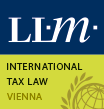Rita Szudoczky
Rita is an associate professor at the Institute for Austrian and International Tax Law of the WU. She obtained her PhD degree at the Amsterdam Centre for Tax Law of the University of Amsterdam in 2013. She wrote her habilitation thesis on the topic “Principles in international taxation: their role in the consolidation, control and disintegration of the international tax regime” and obtained venia docendi in 2022. Previously, Rita had also worked for the IBFD and Loyens & Loeff in Amsterdam, as well as in various law firms in Budapest, Hungary. She has a law degree from Eötvös Loránd University, Budapest, and LLM degrees from the Central European University, Budapest, and Leiden University, the Netherlands.Courses:
Tax Treaties as Tax Planning Tools in a Post-BEPS-Era
The OECD/G20 Base Erosion and Profit Shifting (BEPS) project represents the most important development of the last decades in international taxation. The first round of the BEPS project made several recommendations for changes to tax treaties in order to make them less susceptible to the use in aggressive tax planning structures shifting profits from high tax to low tax jurisdictions and eroding the tax base of countries where actual profit-generating activities take place. The lecture examines to what extent and in which form these recommendations have been implemented in the existing treaty network. It aims at providing an understanding of the rationale and mechanism of the rules implemented in treaties as a result of BEPS. In addition, it discusses what scope is left for tax planning using tax treaties in the post-BEPS era by assessing the effectiveness of the BEPS-related treaty changes and the room inadvertently or purposefully left open for tax competition.
Master thesis 2026/2027 full-time program - general topic: International Tax Governance
This introductory lecture will deal with the role of various international bodies in international tax governance focusing on the OECD/G20 Inclusive Framework on BEPS and the United Nations (UN), their agenda and standard setting, decision-making processes, the representation of different group of countries within these bodies and their ability to effectively pursue their interests in global tax negotiations. We will look at the legitimacy of these bodies and their decision-making processes as well as the legitimacy of the output of their work in international tax coordination. Special focus will be put on the quest of non-OECD countries to make the United Nations the leading organizations in international tax cooperation. The UN’s work on the Framework Convention on International Tax Cooperation will be examined both from a political governance and legal point of view. Overall, the lecture aims at providing students with a solid fundament to be able to critically examine the prevailing power dynamics in international tax governance and the fairness of the international tax architecture from a procedural and substantive point of view.
The Effects of the MLI on Tax Treaties
The Multilateral Convention to Implement Tax Treaty Related Measures to Prevent Base Erosion and Profit Shifting (MLI) was a new phenomenon in international taxation at the time of its adoption. It was developed to change the existing tax treaties by way of a single instrument in order to include in them measures recommended by the BEPS project, mainly aimed at preventing tax treaty abuse. The lecture examines the actual effect that the MLI has on tax treaties focusing on its flexible nature which offers many possibilities to the parties for reservations, opt-ins and alternatives making it fit for various bilateral relations. We will also discuss the mechanism through which the MLI modifies existing tax treaties, all with the aim of understanding how the MLI changes the application of tax treaties as we currently know it.
Back to list

